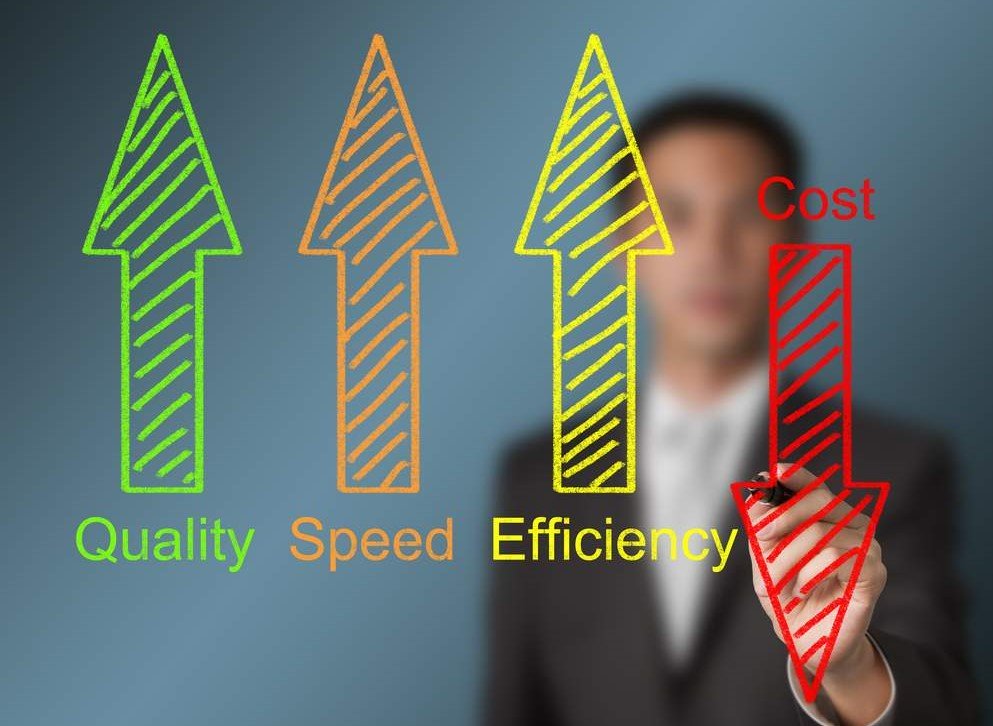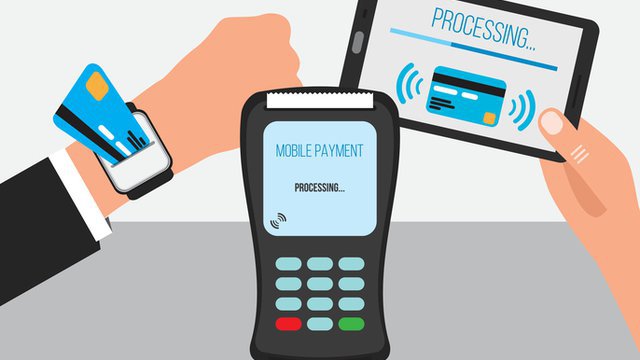
By Danh Nguyen
Regardless of where you are in the world — whether it’s London, New York, Tokyo, Sydney or anywhere else in between — contracts form the bedrock of commercial life. It’s the key framework that shapes and gives meaning to every commercial relationship — between buyer and seller, between business partners, between partners in a joint venture. It is the engine that drives commercial activity!
Contracts have been around for centuries. So, why is it that it remains a long, protracted, tedious and inefficient process? To this day, most contractual negotiations involve multiple parties sitting in a room hashing it out over hours, days, weeks and months to get the darn thing agreed and completed. And the tedium doesn’t stop there, it extends to the hours and hours of drafting and re-drafting carried out by junior lawyers. And let’s not forget about all the different versions being updated and updated again and again (often running into double digit versions).
Despite the huge advances in technology in the last 5-10 years (including LegalTech), things haven’t changed very much in this space – contracts remain by far the biggest activity worked on by lawyers, whether in-house or private practice. There hasn’t been a major push to look for better and more efficient ways to draft, review, negotiate and execute contracts – e.g. leveraging technology and smart processes to improve the efficiency of contracting processes and to enhance the end-user experience. From a business stakeholder’s perspective, the inefficiency of this process creates bottlenecks and slows down business growth and market expansion. All of this results in a less than optimal customer experience. But let’s flip this and use the customer expectations of more to drive the change, both externally and internally. This is an opportunity to review and make the full end-to-end process optimal!
What are the main causes of this inefficiency?
Based on our experience, there are three main areas that cause inefficiency:
- Wrong negotiation starting point: Companies (and this includes the lawyers in the company’s Legal Department) often start with an unnecessarily rigid and unreasonable negotiating starting point. While it’s important to seek to protect the interests of your client (the company), it doesn’t always make sense to start with such an unreasonable position. This is especially the case if you know, based on past experience, that the clause would be heavily negotiated by the other side each and every time and you know that you’re going to give way (and you’re comfortable to do so commercially). Why waste time, money and effort on this when you can focus on other things that matter more to your business? The point being, start with a document that makes commercial sense, but still allows for relevant risks to be appropriately managed and mitigated.
- Lack of defined processes: Because of pressure from the business clients and stakeholders and a lack of clearly defined processes, lawyers will often respond to requests as and when they come through the door. Indeed, most of a lawyer’s time is spent on receiving instructions, reviewing instructions and then responding to them on a case by case basis, often with little direction on what’s important, what can be deprioritised, what can be handled by a more junior lawyer or paralegal, what lower risk items can be handled by the business team (with some high-level guidance from the lawyer). Because there’s not a settled process for the receipt, triaging and allocation of new instructions that come into the funnel, this slows down the contracting process and doesn’t allow the lawyers to spend the time to focus on higher value/strategic contracts work.
- Failure to leverage playbooks, cheat sheets, LegalTech tools (such as contract automation), etc: Despite overwhelming evidence to suggest that the adoption and use of these tools helps to streamline and improve the efficiency of the contracts drafting, review and negotiation process, take-up among lawyers (in-house legal counsel and private practice alike) remains quite low. The key benefits of these tools are that they allow for better accuracy, consistency and predictability. If you know in advance the parameters of what you can and can’t agree to, or what are the acceptable fall-back positions or clauses, you can save a lot of time and frustration. It will also allow you to better mitigate against the real risks as you can leverage the intelligence gathered from other similar transactions negotiated in the past. Some contract automation software tools will also provide you with rich data to understand which clauses are the most negotiated; again, allowing you to better prepare for any negotiations.
What can you do to make this process more efficient and frictionless?
It doesn’t have to remain this way. There are ways to make the contracting process more efficient and effective. Here are some practical ways you can get started with:
- Map out your process: Do a review and audit of your existing contracting process by mapping out all the main steps from the time a lawyer/Legal Team receives a request from the business clients, all the way to when the contract is agreed and executed.
- Identify opportunities to optimise and enhance the efficiency of the process: Is there any wastage or duplication of steps? Can those steps be reduced, enhanced or removed? Can any of the steps be automated? Etc. Review your existing contract templates to ensure that they are fit for purpose – do they need to be 20 pages? Are certain boilerplate provisions be removed? Can you incorporate design thinking into how you design and capture your contracts?
- Develop playbooks, cheat sheets, contracting guidelines and policies: Do you already have these tools in place to help with the drafting, review and negotiation of contracts? If yes, do they need to be updated or enhanced? Are they aligned with the overall objective of helping to make the contracting process more efficient and frictionless? If you don’t have these tools, start developing these tools, and making sure that you take into account how they are to be used by the team and how it will assist to speed up the process by making it easier and simpler for the lawyers and the business clients who have to work on the contracts – e.g. are there templates and guides that you can provide to the business teams in advance so that they can identify the areas they need to place particular focus on relative to others in the negotiations? Can contracts with a value of below a certain threshold amount and/or of low risk be devolved to the responsibility of the business team, paralegals or contract managers? Etc.
- Select, procure and implement appropriate technology: Depending on your budget, internal people resources and appetite for technology solutions, you should identify, procure and implement the right technology tools that will help your team to enhance the efficiency and effectiveness of your contracting process – e.g. some software tools allow for automating actual the generation of certain contracts, while others will provide insights on which clauses are the most heavily negotiated and why, and provide automated options for offering alternate clauses. Key to remember is that there is no one-size-fits all approach and you need to invest the time to do the proper due diligence on what’s going to be best for your team. Contracting technology runs the spectrum of automated drafting on your own terms through AI-assisted pre-screening of counterparty drafts. These different technologies come with different capabilities, regional coverage, and price points. Further, every tool has different capabilities for integration and white labelling into your existing platforms.
- Effective change management: And, remember, for this exercise to be successful, you will need to have in place an effective change and stakeholder management process, that considers the needs of those affected, which will then increase your chances of better adoption and . Keep in mind that ‘contracts’ is a category that only lawyers talk about. Your business stakeholders think in terms of deals and opportunities and that means bringing them along on a journey to increased automation and self-service is a journey of change, in both what they do (process) and how they do it (technology). As a result, change management can be the difference between an implementation that goes nowhere and an adoption that transforms the way your company operates.
 Danh is the EMEA General Manager & Managing Consultant of KorumLegal and an experienced general counsel with over 18 years of global commercial practice experience across banking/financial services/payments and IT/technology and outsoucing sectors. He has worked in global listed companies and in private practice on a wide range of matters including general commercial, remittances and payments, financial services regulatory, AML/CTF, business advisory and strategic risk and compliance. He has advised on and led efforts to successfully apply for remittance and payments licences in a number of jurisdictions across Asia Pacific. He brings the diversity of his experience to the KorumLegal management team in leading large transformation initiatives, using Lean Management principles, tools and practices to drive organisational, operational and cultural change, including Legal Process Management.
Danh is the EMEA General Manager & Managing Consultant of KorumLegal and an experienced general counsel with over 18 years of global commercial practice experience across banking/financial services/payments and IT/technology and outsoucing sectors. He has worked in global listed companies and in private practice on a wide range of matters including general commercial, remittances and payments, financial services regulatory, AML/CTF, business advisory and strategic risk and compliance. He has advised on and led efforts to successfully apply for remittance and payments licences in a number of jurisdictions across Asia Pacific. He brings the diversity of his experience to the KorumLegal management team in leading large transformation initiatives, using Lean Management principles, tools and practices to drive organisational, operational and cultural change, including Legal Process Management.

































 Titus Rahiri
Titus Rahiri







